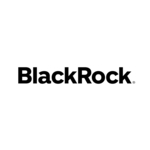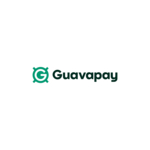Smart Ticketing Market Expected to Hit US$ 25.3 Billion by 2026, By Persistence Market Research
The global Smart Ticketing Market is poised for a 15.2% CAGR (2022-2026). It utilizes electronic microchip-based tickets, replacing paper. Widely adopted in transportation, it extends to sports, entertainment, finance, and healthcare, driven by demand, contactless payments, intelligent transportation, and wearable tech.
New York, Jan. 18, 2024 (GLOBE NEWSWIRE) — The Rise of the Smart Ticket: A Dive into the Booming Market
Smart Ticketing involves the use of technology to enhance ticketing processes for various modes of transportation and events. It leverages digital platforms, contactless payment methods, and data analytics to streamline ticket purchasing, validation, and access. The global Smart Ticketing market is currently valued at USD 14.4 billion. With a compound annual growth rate (CAGR) of 15.2%, the market is expected to reach USD 25.3 billion by 2022–2026. The increasing adoption of smart city initiatives, a growing preference for cashless transactions, and the need for seamless transportation solutions are driving market expansion.
Smart ticketing refers to a technologically advanced system that streamlines the ticketing process for various modes of transportation and events. It eliminates the need for traditional paper tickets by employing electronic means such as contactless cards, mobile apps, and wearable devices. The integration of secure and efficient technologies enables swift and hassle-free access to transportation services, making it a cornerstone in the evolution towards smarter, more interconnected cities.
The Smart Ticketing Market has witnessed robust growth in recent years, fueled by the increasing adoption of smart city initiatives and the rising demand for seamless, digitized transit experiences. With a global shift towards cashless transactions and the proliferation of smartphones, the market is expanding rapidly. The market size is anticipated to continue its upward trajectory, driven by ongoing technological advancements, growing urbanization, and the imperative to enhance the overall efficiency of public transportation systems worldwide.
Seeking Deeper Insights into Competitor Analysis? Request a Sample of the Report Now! https://www.persistencemarketresearch.com/samples/19954
Report Scope:
| Report Coverage | Details | |
| Market Revenue 2022 | USD 14.4 billion | |
| Estimated Revenue 2026 | USD 25.3 billion | |
| Growth Rate – CAGR | 15.2% | |
| Forecast Period | 2022-2026 | |
| No. of Pages | 170 Pages | |
|
Key Market Segments Covered |
|
|
|
Regions Covered |
|
|
|
Key Companies Profiled |
|
|
Emerging Trends and Innovations in Smart Ticketing Market:
The smart ticketing market is buzzing with innovation, transforming how we experience events, transportation, and access control. Here are some key trends:
1. Biometric Ticketing: Say goodbye to fumbling for tickets! Facial recognition and fingerprint scanning are streamlining entry, offering enhanced security and convenience. Imagine boarding a train with a mere glance.
2. Dynamic Pricing: Tickets that adjust based on real-time demand are gaining traction. This optimizes revenue for event organizers and offers last-minute deals for attendees, creating a win-win situation.
3. Multimodal Integration: Tickets seamlessly integrating various modes of transport are on the rise. A single ticket for bus, train, and metro travel across a city? It’s becoming a reality.
4. Hyper-Personalization: Tickets are evolving beyond mere access. Imagine a concert ticket recommending nearby restaurants or curated playlists based on your music preferences. This personalized experience deepens engagement and drives ancillary revenue.
5. Blockchain-Powered Security: Blockchain technology is ensuring tamper-proof ticketing, eliminating fraud and ticket scalping. This fosters trust and transparency in the ticketing ecosystem.
6. AI-driven Ticketing Assistants: Virtual assistants are helping users navigate ticketing platforms, recommend events, and even personalize travel itineraries. Imagine an AI assistant suggesting the perfect concert based on your mood and interests!
These are just a glimpse into the exciting world of smart ticketing. As technology advances, we can expect even more innovative solutions that make our lives smoother, safer, and more enjoyable.
In a nutshell, the Persistence Market Research report is a must-read for start-ups, industry players, investors, researchers, consultants, business strategists, and all those who are looking to understand this industry. Get a glance at the report at – https://www.persistencemarketresearch.com/market-research/smart-ticketing-market.asp
Market Drivers:
Urbanization and Population Growth: Rapid urbanization and the increasing global population are driving the demand for efficient and sustainable transportation solutions. Smart Ticketing addresses the challenges of urban mobility by providing convenient and integrated ticketing systems.
Advancements in Technology: Technological innovations, including mobile apps, Near Field Communication (NFC), and Radio-Frequency Identification (RFID), are enhancing the efficiency and accessibility of Smart Ticketing systems. These advancements cater to the digital preferences of modern consumers.
Contactless Payment Adoption: The global shift towards contactless payment methods is a significant driver for Smart Ticketing. Consumers prefer the convenience and speed of contactless transactions, contributing to the widespread adoption of smart ticketing solutions.
Government Initiatives and Regulations: Government initiatives to promote smart city development and sustainable transportation are boosting the implementation of Smart Ticketing systems. Supportive regulatory frameworks and collaborations between public and private sectors further drive market growth.
Market Restraints:
Infrastructure Challenges: Implementation of Smart Ticketing systems may face challenges related to existing infrastructure, particularly in developing regions. Upgrading and integrating new technologies into legacy systems can be complex and costly.
Security Concerns: The digital nature of Smart Ticketing introduces security concerns such as data breaches and cyber-attacks. Ensuring the integrity and confidentiality of user data is crucial for building trust among consumers.
Initial Implementation Costs: The upfront costs associated with deploying Smart Ticketing systems, including technology integration, equipment installation, and system maintenance, can pose challenges for transportation authorities and service providers.
Market Opportunities and Challenges:
Opportunity:
Integration with Mobility-as-a-Service (MaaS): The integration of Smart Ticketing with Mobility-as-a-Service platforms presents a significant opportunity. Seamless connectivity between different modes of transportation enhances the overall travel experience.
Emerging Markets: Untapped markets in developing regions, where urbanization is on the rise, offer growth opportunities. Strategic partnerships and collaborations with local authorities can facilitate market entry.
Challenge:
User Education and Adoption: Encouraging user education and promoting the adoption of new ticketing methods can be a challenge. Public awareness campaigns and user-friendly interfaces are essential for overcoming this hurdle.
Interoperability Issues: Ensuring interoperability between different Smart Ticketing systems and across various transportation modes is a challenge. Standardization efforts are required to create a seamless experience for users.
Key Market Players:
The Smart Ticketing market is characterized by the active participation of key players who contribute to innovation and enhance market competitiveness. Among the prominent entities in this dynamic landscape are Confidex Ltd., known for its expertise in providing smart ticketing solutions. Cubic Corporation is another significant player, recognized for its contributions to intelligent transportation systems and smart payment technologies.
Hid Global Corporation, a subsidiary of Assa Abloy AB, is a key player leveraging its strengths in secure identity solutions within the smart ticketing domain. Hitachi Ltd., a global conglomerate, is actively involved in shaping the market with its advanced technology solutions, while Indra Sistemas S.A. plays a crucial role in providing information technology and transportation solutions.
Infineon Technologies AG, a semiconductor manufacturer, contributes to the Smart Ticketing market with its expertise in developing secure and efficient chip solutions. NXP Semiconductors N.V. is also a noteworthy player, focusing on semiconductor technologies and secure connectivity solutions that enhance smart ticketing systems.
These key players collectively drive innovation, foster technological advancements, and shape the competitive landscape of the Smart Ticketing market, catering to the growing demand for efficient, secure, and seamless ticketing solutions in various industries.
Key Market Segments Covered
The Smart Ticketing Market is systematically categorized based on its offerings and applications, reflecting the diverse technological solutions and industry applications within this growing sector.
Offerings: In terms of offerings, the Smart Ticketing Market presents a spectrum of choices to cater to various user preferences and requirements. This includes Smart Cards, Wearables, Readers, and other innovative solutions. Smart Cards are widely adopted for their ease of use and integration capabilities, while Wearables bring a new dimension to ticketing convenience. Readers and other technologies contribute to the ecosystem by enabling seamless interactions between users and the smart ticketing infrastructure.
Applications: The Smart Ticketing Market’s application-based categorization underscores its versatility across multiple sectors. Transportation stands out as a primary application, where smart ticketing systems streamline public transit and improve commuter experiences. Additionally, the market extends its influence to Sports & Entertainment, Healthcare, Parking, and other domains. These applications showcase the adaptability of smart ticketing solutions in simplifying access, enhancing security, and providing efficient management in diverse settings.
The structured categorization of the Smart Ticketing Market based on offerings and applications highlights its multidimensional impact on modern lifestyles. As technology continues to advance, the market is poised to witness further innovations and integrations, ensuring its relevance and efficacy across a broad spectrum of industries and user scenarios.
Regional Market Dynamics
North America: North America dominates the Smart Ticketing market, driven by the adoption of advanced technologies, smart city initiatives, and a well-established public transportation infrastructure.
Europe: Europe is a key player in the Smart Ticketing market, with extensive use of contactless payment systems and a focus on sustainable transportation solutions. Interoperability initiatives contribute to market growth.
Asia-Pacific: The Asia-Pacific region is experiencing rapid market growth, fueled by urbanization, population density, and government investments in smart city projects. Increasing smartphone penetration contributes to the adoption of mobile-based ticketing solutions.
Future Prospects
While the smart ticketing market has made remarkable strides, it is not without its challenges. Some of the key considerations include:
Interoperability: Achieving interoperability among different smart ticketing systems remains a challenge. Standardization efforts are underway, but seamless integration across various transportation networks and industries is essential for broader adoption.
Privacy Concerns: The widespread use of digital tickets raises concerns about data privacy and security. Striking a balance between convenience and protecting user data is crucial for building trust in smart ticketing systems.
Infrastructure Investment: The transition to smart ticketing requires significant investment in infrastructure, including the installation of contactless readers, mobile app development, and system integration. This poses challenges for smaller transportation agencies and event organizers with limited resources.
Frequently Asked Questions (FAQ):
- What are the driving forces behind the rapid growth of the Smart Ticketing market?
- What are some of the emerging trends and innovations shaping the future of Smart Ticketing?
- What are the potential opportunities and challenges faced by the Smart Ticketing market?
- Who are the major players driving innovation and shaping the competitive landscape of the Smart Ticketing market?
- What are the regional dynamics of the Smart Ticketing market?
About Persistence Market Research:
Business intelligence is the foundation of every business model employed by Persistence Market Research. Multi-dimensional sources are being put to work, which include big data, customer experience analytics, and real-time data collection. Thus, working on “micros” by Persistence Market Research helps companies overcome their “macro” business challenges.
Persistence Market Research is always way ahead of its time. In other words, it tables market solutions by stepping into the companies’/clients’ shoes much before they themselves have a sneak pick into the market. The pro-active approach followed by experts at Persistence Market Research helps companies/clients lay their hands on techno-commercial insights beforehand, so that the subsequent course of action could be simplified on their part.
Contact Us:
Persistence Market Research
Teerth Technospace, Unit B-704
Survey Number – 103, Baner
Mumbai Bangalore Highway
Pune 411045, India
Email: [email protected]
Web: https://www.persistencemarketresearch.com



































